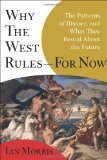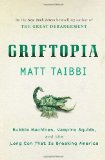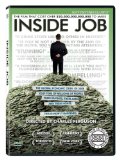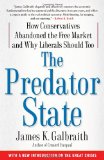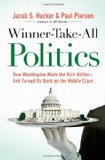Talk by Paul and Joanne at the Spring 2011 Society for American Archaeology meetings in Sacramento, California. This talk reviews the archaeology of coercive technology in native North America and its relationship to the evolution of social complexity and revolutionary social change. As discussed in Chapter 12 of Death from a Distance, North American archaeology is one of the richest and most important sources of data to test any theory of history and our theory is extremely powerful in the predictions it makes about what should be found by archaeologists.
Beyond the Book
NSF Evolutionary Studies Talk
Paul and Joanne gave a lecture in the National Science Foundation funded series hosted by the Evolutionary Studies program at SUNY New Paltz on April 11, 2011. This talk is a broad introduction to the power of our fundamental theory to explain human origins, properties and history. We review the fundamental theory and its accounts of the fossil record of human emergence, the origin of the uniquely powerful human mind, and the diverse transitions of the historical record, including the behaviorally modern human revolution, the agricultural revolutions and the rise of the modern state. See webcast, with slides
‘Why the West Rules – For Now’ Review
A book very well worth reading. Morris is an excellent historian and a great story teller. He weaves the exploding body of empirical evidence about human history into an easily followed story line culminating in the emergence of the contemporary “world order.” However, as a theorist of history he has a long way to go.
Morris attempts to begin this intellectual journey with the origins of humans ca. 2 million years ago. But evolutionary biology and paleoanthropology are not his forte and this early part of the book is a little shallow and unsatisfying. However, as he reaches the eras where his specialties, archaeology and history, get traction, the story gains powerful substance and narrative force.
Read the rest of this entry »
‘Griftopia’ Review
Stop everything and read this book – not tomorrow, today! Taibbi is the latest and, by far (so far), the best of the army of scholars and journalists illuminating the horror of the recent financial crisis and the malfeasance of major players. His directness and candor is refreshing and informative. He lays out the real significance of the AIG bailout, the collapse of Lehman Brothers, the taxpayer-subsidized super-profitability of Goldman Sachs, Greenspan’s insane shenanigans at the Fed, the authentic toxicity of the health care bill (not the brainless critique from the radical right) among other things. You will emerge from this book understanding your world and its mortal perils with astonishing new lucidity. Another outstanding book, Winner Take All Politics (Pierson and Hacher, 2010), gives you the 30 year strategic history of the most recent seizure of our country by financial elites. Taibbi gives you the tactical implications of this seizure. If we are to take back our political and economic systems, this kind of clear-eyed understanding is the crucial first step.
Reviewed by Paul M. Bingham and Joanne Souza
Coauthors of “Death from a Distance and the Birth of a Humane Universe”
Matt Taibbi
Spiegel & Grau (2010)
‘Inside Job’ (documentary) Review
This documentary does an outstanding job of bringing home the details of how a series of truly bad financial actors catalyzed the current (and still ongoing) financial crisis. Many of the specifics of this story will not be new to readers of the outstanding books on the financial crisis. However, to see all the threads of this story pulled together with such clarity and dramatic power is extremely bracing. Equally importantly, this documentary brings home another crucial point, which has previously been little understood. Some segments of academic “economics” have been bought by elite financial interests (through donations, speaking fess, rich consulting contracts, etc). The professional academy is supported by all of us (through massive tax-payer-funded government support of both public and private universities). Thus, this breach of trust is especially egregious. We have, tragically, come to expect our politicians to be prostitutes, but we should never tolerate whores in the academy. It will be of the greatest interest to see how (or, sadly, if) the economics profession moves to clean up its house. We should all see this documentary and have its message ever in mind as we listen to the dubious pronouncements of politicians and bought economists. Those who have criticized this important piece as “socialists” are either clueless or have some very narrow interests to protect – interests not confluent with most of the American electorate. If you want to be a part of taking back the American economy for most Americans (rather than the hyper-rich) this film is a must-see.
Reviewed by Paul M. Bingham and Joanne Souza
Coauthors of “Death from a Distance and the Birth of a Humane Universe”
Starring Matt Damon, Directed by Charles Ferguson
Representational Pictures (2010)
‘Third World America’ Review
Huffington uses her vantage at The Huffington Post to gain access to the best thought on the financial crisis. She capitalizes on this perspective to add to our understanding of how millions of American lives have been damaged or destroyed by the narcissistic behavior of some truly bad actors in our financial and political communities. This individual, personal perspective is the greatest value of this book, allowing us to see exactly how so many of us have been brutally harmed by parasites on our system of democratic capitalism. The individual accounts here are heart breaking. This evocative perspective arms us to move forward (as we must) to ostracize corrupt or incompetent politicians and reassert common control of the economic system that, after all, belongs to all of us. Huffington also adds to our empirical ammunition against bad actors – she names names, specific acts, individual politicians, particular financiers. This detail is a useful addition to the insight we also get from powerful recent accounts by professional scholars (see, especially, “Winner Take All Politics” by Pierson and Hacker and “Predator State” by Galbraith). Policing bad actors on the basis of the information we share as members of the pan-human wise crowd is our ancient strategy for dealing with all adaptive challenges. Huffington makes a powerful addition to our mutual use of this ancient human strategy as we proceed to recapture our society and our economy.
Reviewed by Paul M. Bingham and Joanne Souza
Coauthors of “Death from a Distance and the Birth of a Humane Universe”
Arianna Stassinopoulos Huffington
Crown (2010)
‘The Predator State’ Review
Galbraith does a masterful job of educating us in some illuminating ways. Though the book starts a little slowly, the reader who stays with it will be richly rewarded. If we are to assert our mutual control over our economic system, we must first become much more knowledgeable about how it works. Most of us (including a shocking number of politicians and business people) are blithely ignorant in these matters. As Galbraith compellingly argues, our system of democratic capitalism is not, even in principle, a “free market,” for example. Rather, our economics and politics emerge from the clashing (often) or cooperating (occasionally) of interest groups who mostly seek to manipulate our larger society in pursuit of their own narrow goals. Worst of all, these interest groups concoct “ideologies” (belief systems) justifying their actions – dressing up what otherwise would be transparently naked self-interest. “Free-market capitalism” is one of these ideologies. This belief system is like fundamentalist religion, serving the common interests of its elite adherents with no need for facts or empirical support. From this bracing perspective, Galbraith gives us an insider’s tour of how our economic system came to its present, grossly distorted state. No one who is looking to reclaim control of our financial system in the interests of all of us should miss this potent book. All activities (financial or otherwise) not monitored and managed by the people for the people through regulation are predicted to become predatory on the people. And they have.
Reviewed by Paul M. Bingham and Joanne Souza
Coauthors of “Death from a Distance and the Birth of a Humane Universe”
How Conservatives Abandoned the Free Market and Why Liberals Should Too
James Galbraith
Free Press (2008)
‘Winner-Take-All Politics’ Review
As professional scholars we are in awe of the powerful economy of this masterful book. In this tour de force, Pierson and Hacker systematically unfold the story of the gradual construction of our now failing political and economic system over the last three decades. All of us old enough to have the appropriate perspective are very well aware that we have been sinking into a condition where our economic systems bleed us dry and gives us no security (or even adequate education or health care), while demanding ever greater sacrifices and brutally demanding work from us – at ever lower wages. For example,the American economy has continuously grown more productive over the last three decades; however, unlike earlier eras, virtually all the material benefit from this increased productivity has gone to a tiny group of individuals at the top of the wealth/income pyramid. [Not coincidentally, the last time wealth was this concentrated in elite hands was during the run up to the Great Depression of the 1930’s.] Moreover, these hyper-wealthy interests have increasingly purchased our political system (we no longer own our own country). As Pierson and Hacker carefully (and very readably) document, this ownership has allowed the hyper-rich to skew the rules of the game in their interests, more extremely every day. The recent financial crisis is just the latest rupturing of this political pustule – and it will not be the last or, horrifyingly, the worst. For those who seek to take back democratic ownership of our county (and the economy that is supposed to nurture us), this book is absolutely indispensable.
Reviewed by Paul M. Bingham and Joanne Souza
Coauthors of “Death from a Distance and the Birth of a Humane Universe”
Paul Pierson and Jacob S. Hacker
Simon & Schuster (2010)
An Open Letter to the Students of Texas Public Schools
In a recurring public spectacle, attempts are being made to manipulate you by elected politicians (NOT historians) through the content of the textbooks you will be asked to follow in your history classes. This kind of content manipulation has a long, sad history. For example, it has been a prominent tool of every major authoritarian state of the modern era.
Fortunately for Americans (Texans and otherwise) we do not work for our political entrepreneurs, they work for us. When any public political figures try to feed us a particular view of history, we are free to engage in one of democracy’s greatest birthrights, the open and public application of skepticism and doubt.
If these new textbook standards are successfully implemented, you will be ostensibly encouraged to question many different issues. You should do just exactly that – but on your own broad terms, not their narrow ones. Here are some examples. Read the rest of this entry »
Comment on Newly Released Neandertal Genome Sequence: Neandertals and Moderns – Fellow Members of a Common Humanity?
This week’s publication of the first draft and initial analysis of the Neandertal genome sequence by a large multi-national group is of very special interest. [May 7, 2010, Science]
Our theory makes a very strong prediction about the ascendency of the behaviorally modern humans that are ancestral to all of us alive today (Chapter 11 in Death from a Distance and the Birth of a Humane Universe or DfaD). Our specific claim is that the behaviorally modern human revolution was a social revolution, not a genetic revolution. One of the symptoms of this dramatic process was that the populations of our modern ancestors began to grow and expand out of Africa, thereby driving all other non-modern humans, including the Neandertals of Eurasia, to apparent extinction. Thus, our theory implies that the behaviorally modern displacement of Neandertals was unlikely to reflect some genetic superiority of our “modern” ancestors over other human groups, like Neandertals, traditionally classified as “archaic.” Read the rest of this entry »
